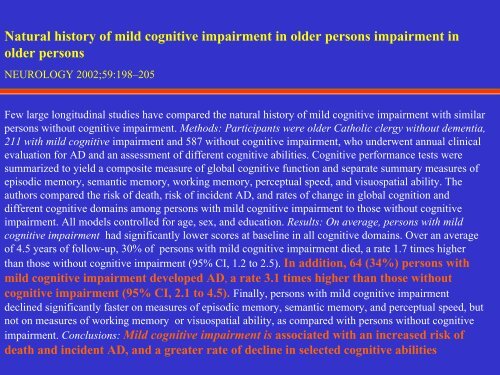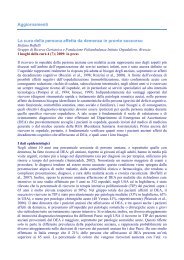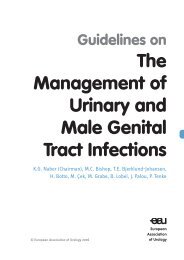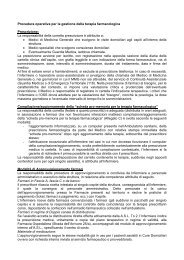Diapositive in formato pdf - GrG
Diapositive in formato pdf - GrG
Diapositive in formato pdf - GrG
Create successful ePaper yourself
Turn your PDF publications into a flip-book with our unique Google optimized e-Paper software.
Natural history of mild cognitive impairment <strong>in</strong> older persons impairment <strong>in</strong>older personsNEUROLOGY 2002;59:198–205Few large longitud<strong>in</strong>al studies have compared the natural history of mild cognitive impairment with similarpersons without cognitive impairment. Methods: Participants were older Catholic clergy without dementia,211 with mild cognitive impairment and 587 without cognitive impairment, who underwent annual cl<strong>in</strong>icalevaluation for AD and an assessment of different cognitive abilities. Cognitive performance tests weresummarized to yield a composite measure of global cognitive function and separate summary measures ofepisodic memory, semantic memory, work<strong>in</strong>g memory, perceptual speed, and visuospatial ability. Theauthors compared the risk of death, risk of <strong>in</strong>cident AD, and rates of change <strong>in</strong> global cognition anddifferent cognitive doma<strong>in</strong>s among persons with mild cognitive impairment to those without cognitiveimpairment. All models controlled for age, sex, and education. Results: On average, persons with mildcognitive impairment had significantly lower scores at basel<strong>in</strong>e <strong>in</strong> all cognitive doma<strong>in</strong>s. Over an averageof 4.5 years of follow-up, 30% of persons with mild cognitive impairment died, a rate 1.7 times higherthan those without cognitive impairment (95% CI, 1.2 to 2.5). In addition, 64 (34%) persons withmild cognitive impairment developed AD, a rate 3.1 times higher than those withoutcognitive impairment (95% CI, 2.1 to 4.5). F<strong>in</strong>ally, persons with mild cognitive impairmentdecl<strong>in</strong>ed significantly faster on measures of episodic memory, semantic memory, and perceptual speed, butnot on measures of work<strong>in</strong>g memory or visuospatial ability, as compared with persons without cognitiveimpairment. Conclusions: Mild cognitive impairment is associated with an <strong>in</strong>creased risk ofdeath and <strong>in</strong>cident AD, and a greater rate of decl<strong>in</strong>e <strong>in</strong> selected cognitive abilities
















